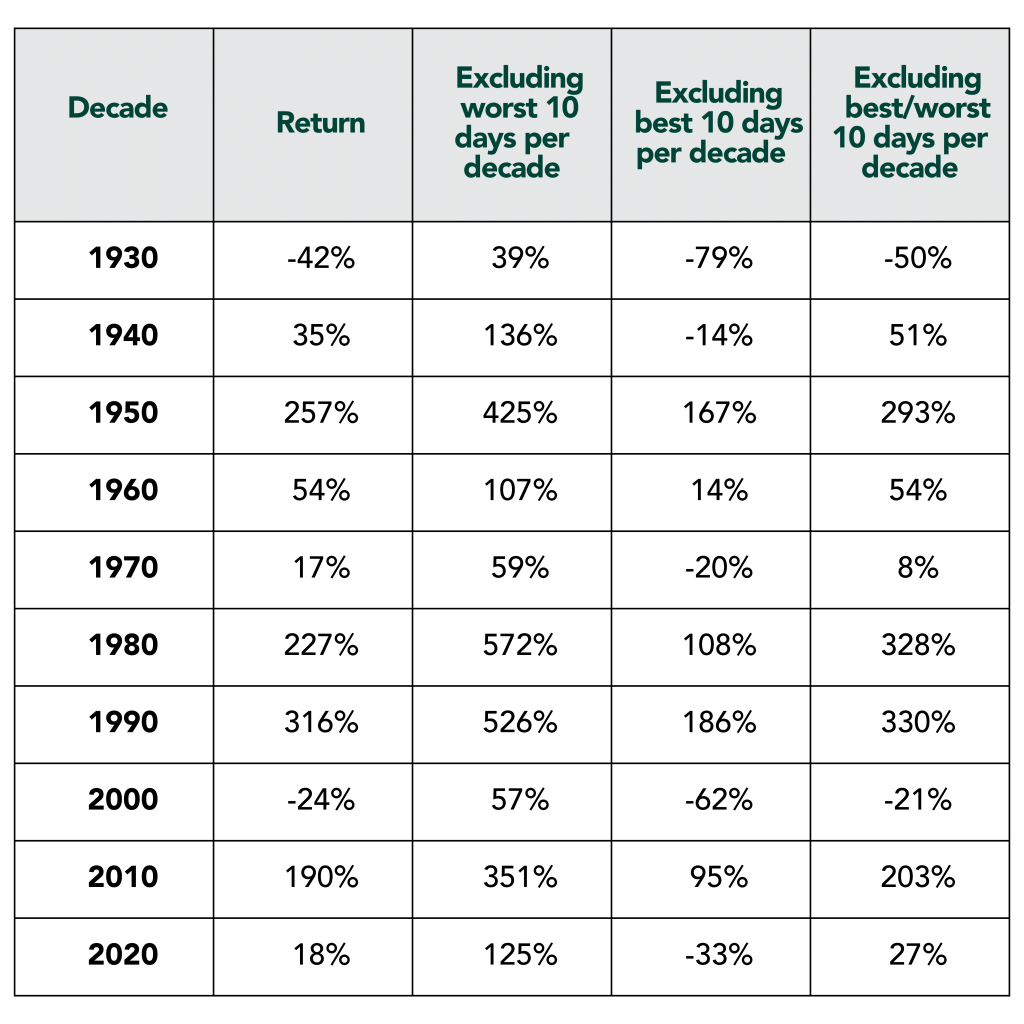Investing in the stock market can often feel similar to navigating through a tempestuous sea. The market’s ebbs and flows may sometimes result in distressing downturns. However, it is during these challenging times that the ability to stay calm and patient truly shine.
Historical data and decades of Pembroke’s experience indicate that investors who maintain their composure, instead of yielding to fear, often find themselves handsomely rewarded during subsequent upturns.
A Marathon, Not a Sprint
One common misperception surrounding investment is that it is a sprint, a quick fortunate dash towards a destination. Experience and research paint a different picture, likening investing more to a marathon—a steady, enduring journey.
This concept is well illustrated by a study conducted by H. Nejat Seyhun, a professor at the University of Michigan. Seyhun’s research on the United States stock market over 31 years reveals that nearly all the gains were concentrated within just 90 out of 7,802 trading days, a mere 1% of the total. This finding underscores the futility of trying to time the market and highlights the importance of consistent, long-term investing [i].
Financial analyst and author Nick Magguilli further explores this idea. His research revealed that even an investor fortunate enough to invest solely at the market’s lowest points each year from 1970 to 2019 would only see an annual return 0.4% higher than someone who consistently invested each month, regardless of market ups and downs [ii].
Risks of Market Timing
These insights become clearer when we look at how trying to time the market could have affected returns over different decades.
Consider the investor who stayed in the market consistently, compared to the investor who missed the worst or best ten days, or even both. In the table below, Bank of America looked at the impact of missing the market’s ten best and worst days each decade.
The Difficulties of Trying to Time the Market

What is clear is that avoiding the worst days would have a significant positive impact on returns. While this is why many people try to time the market, the problem is that market timers may inadvertently miss the best days, which would significantly lower their realized return. As consistently timing the market is difficult if not impossible, we believe that the risk of trying to do so are more significant than the risk involved in simply staying invested.
Consistency and Diversification
Consistency in investing is further endorsed by a study conducted by British investment firm Hargreaves Lansdown. Over a recent three-year period, women, who were found to make fewer transactions and invest more frequently in diversified funds, had higher annual returns than men by 0.81%. [iii]
Project this difference over 30 years, and women could amass 25% more assets on average than men. This data demonstrates the potent combination of a consistent and diversified investment approach that can be used by men as well as women.
Diversification is indeed an indispensable principle of successful investing. By spreading your investments across a variety of assets, you can minimize risk while potentially enhancing returns. This practice underscores the importance of a steady, measured approach to wealth management—one that we, at Pembroke, endorse.
In conclusion, the threefold path to successful investing demands maintaining calm during market fluctuations, consistently investing without succumbing to the lure of timing the market, and incorporating a diversification strategy. These principles, rooted in solid empirical evidence, are guiding lights to navigate the turbulent currents of financial markets.
At Pembroke, we have been steadfast believers in the power of patience, consistency and diversification for over half a century. We are committed to these principles as we support you in your financial and wealth management journey.
[i] Nejat Seyhun, Stock market extremes and portfolio performance, Towneley Capital Management, 1994.
[ii] Nick Maggiulli, Why Market Timing Can Be So Appealling, ofdollarsanddata.com, Jan 20, 2020.
[iii] Nicholas Hyett, Do Women Make Better Investors?, Hargreaves Lansdown, January 29, 2018.
Other Articles Of Interest
Disclaimer
This report is for the purpose of providing some insight into Pembroke and the Pembroke funds. Past performance is not indicative of future returns. Any securities listed herein, are for informational purposes only and are not intended and should not be construed as investment advice nor is it a recommendation to buy or sell any particular security. Factual information has been taken from sources we believe to be reliable, but its accuracy, completeness or interpretation cannot be guaranteed. Pembroke seeks to ensure that the content of this document is correct and up to date but does not guarantee that the content is accurate and complete and does not assume any responsibility for this. Pembroke is not responsible for decisions or actions taken or made on the basis of information contained in this document.

